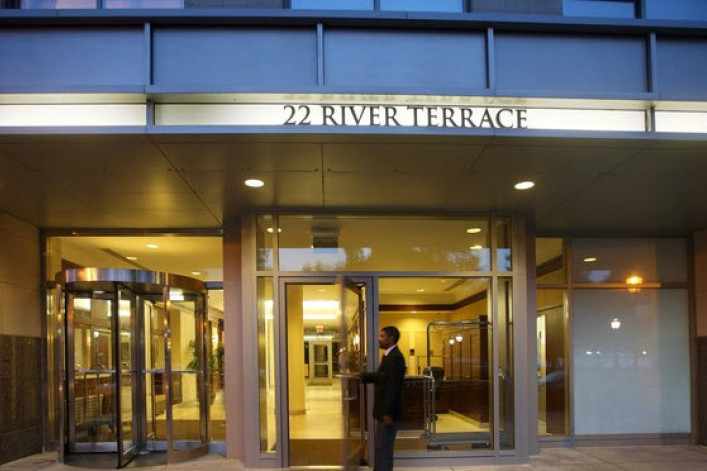Your rental building's going condo. Now what?

We don’t envy the tenants of 22 River Terrace, a 342-unit apartment tower in Battery Park City. The new owner plans to take it condo, and is relying on an unusual clause in the tenants’ leases to kick them out with a mere 90 days notice.
Fortunately for the rest of us, such clauses are extraordinarily rare. Most of the time, when a building goes condo, renters are given the option to remain as tenants or purchase their apartment at an insider price, which is typically at least 5 to 10 percent lower than what they'd pay on the open market, says real estate attorney and buyout expert Steven Wagner of Wagner Berkow.
Here's how the process usually plays out--and how not to get played if it happens to you.
Size up the plans
Before a developer can convert a building and start selling condos, they must get their "offering plan"—which describes the development plans in mind-numbing detail—approved by the New York Attorney General’s office.
As a tenant, the first you'll see of this is the "red herring," a preliminary plan that earned its name because the words on the cover are bright red. (Yes, that’s what passes for a joke in bureaucratic circles.)
The attorney general's office has to wait four months before reviewing the red herring, which gives tenants time to evaluate the specifics of the plan and negotiate a better deal. While it's legal for a developer to craft a plan that involves evicting the tenants, those kinds of projects are virtually non-existent these days, Wagner says.
After that, the attorney general and the developer spend up to two months ironing out any issues in the red herring. Once the agency accepts it for filing—which is different from the final approval for the development—the document is called a “black book.” (And yes, it does have black letters on the cover.) At that point, the developer can start selling the condos, including to existing tenants.
Lawyer up
Typically, tenants hire an attorney to do the negotiating with the developer. They’ll also hire an engineer or architect to inspect the building and uncover any issues that aren’t disclosed in the red herring.
Don’t be put off by the cost of these professionals, since the developer will often pick up the tab. After all, it's in the developer's best interest to convince renters to buy and avoid delays during the project.
“The expense is not so great that they would say no to that, versus not having a deal,” Wagner says.
Play nice with your neighbors
“Initially, [tenants] all have a common interest, which is to get the best deal possible,” Wagner says. But battles can crop up as some decide to buy and others to keep renting.
Banding together will often get you a host of concessions from the developer, such as even better purchase prices, an agreement to limit rent increases for residents who don't buy, permission to transfer the purchase contract to a family member or investor, or changes to how the condo or co-op board is run to give residents more control, Wagner says.
If you can get 40 to 60 percent of the building to sign a no-buy pledge, meaning they promise not to buy until certain milestones take place, you’ll have an extra leg up, he says.
"A no-buy pledge gives you leverage, but is not absolutely necessary," he adds. "Sometimes bringing a pile of subscription or purchase agreements [for co-ops or condos, respectively,] will also work, and sometimes the sponsor will simply negotiate in order to facilitate reaching the number of purchasers needed to have a successful conversion."
Complain to the attorney general
If anything has been left out of the plan, or if your engineer’s report differs significantly from what the developer says in the red herring, you can file a complaint with the attorney general. The office may investigate any big discrepancies, and make sure you’re not getting taken advantage of.
Dig deeper
The attorney general’s office has a great step-by-step guide to how the process works. Bonus: it’s not too full of jargon.
Related posts:
What are the risks of buying into a condo or co-op conversion?
Landlord wants to buy you out? Here's how to name your price
Would you rather rent or own your NYC apartment?
Lessons from the $17 million buyout of a rent-stabilized apartment



























